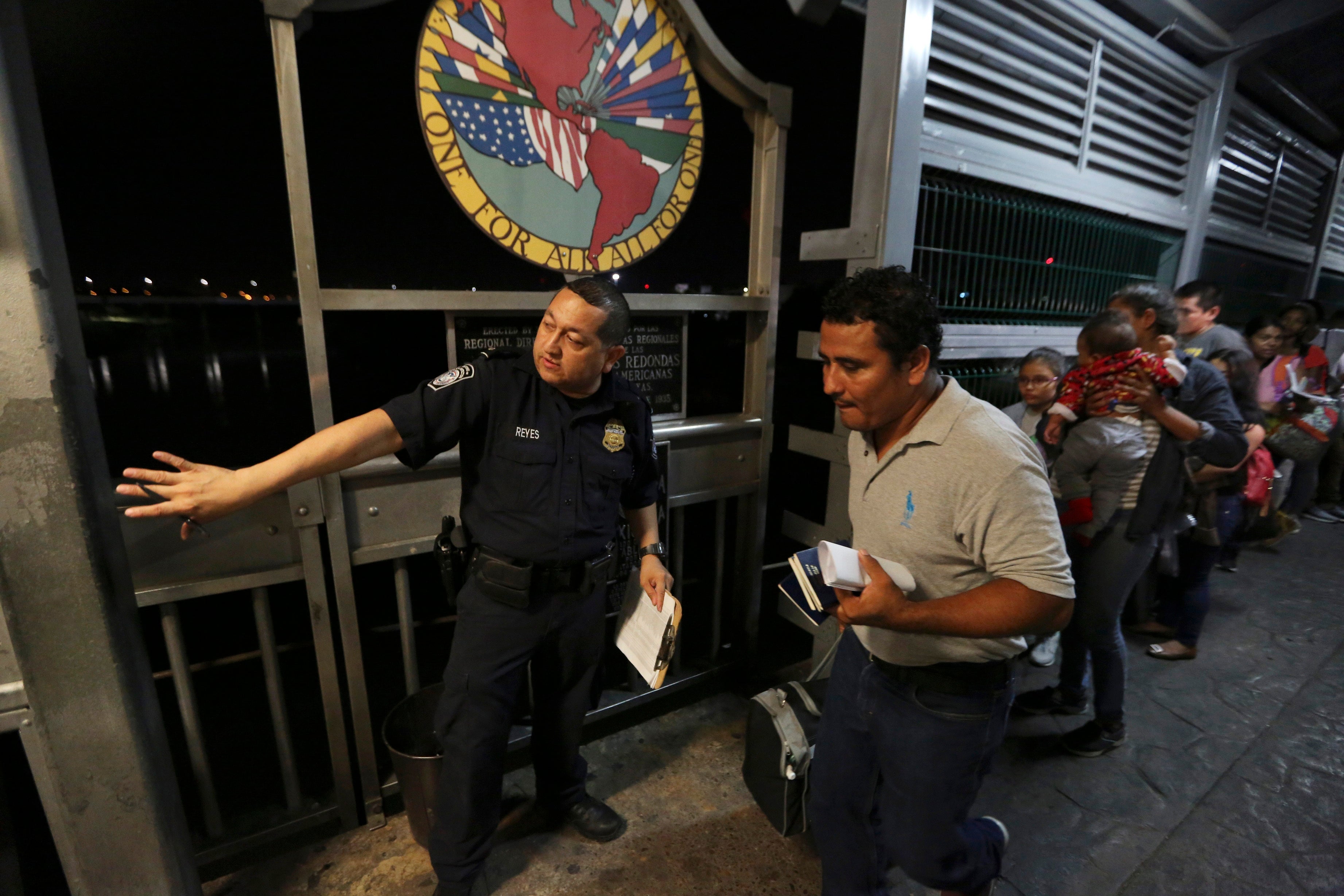US quietly expands asylum limits while preparing to end them
Officials say the Biden administration has begun expelling Cubans and Nicaraguans to Mexico under pandemic-related powers that deny migrants a chance to seek asylum, expanding use of the rule even as it publicly says it has been trying to unwind it

Your support helps us to tell the story
From reproductive rights to climate change to Big Tech, The Independent is on the ground when the story is developing. Whether it's investigating the financials of Elon Musk's pro-Trump PAC or producing our latest documentary, 'The A Word', which shines a light on the American women fighting for reproductive rights, we know how important it is to parse out the facts from the messaging.
At such a critical moment in US history, we need reporters on the ground. Your donation allows us to keep sending journalists to speak to both sides of the story.
The Independent is trusted by Americans across the entire political spectrum. And unlike many other quality news outlets, we choose not to lock Americans out of our reporting and analysis with paywalls. We believe quality journalism should be available to everyone, paid for by those who can afford it.
Your support makes all the difference.The Biden administration has begun expelling Cubans and Nicaraguans to Mexico under pandemic-related powers to deny migrants a chance to seek asylum, expanding use of the rule even as it publicly says it has been trying to unwind it, officials said Wednesday.
The U.S. struck agreement with Mexico to expel up to 100 Cubans and 20 Nicaraguans a day from three locations: San Diego; El Paso, Texas; and Rio Grande Valley, Texas, according to a U.S. official with direct knowledge of the effort.
The expulsions began April 27 and will end May 22, the official told The Associated Press on condition of anonymity because the agreement has not been made public. They are carried out under Title 42 authority, which was named for a public health law and used to expel migrants on grounds of preventing spread of COVID-19. Title 42 is due to expire May 23.
The U.S. and Mexico agreed April 26 to a very limited number of expulsions of Cubans and Nicaraguans, according to a high-level Mexican official who spoke on condition of anonymity because they were not authorized to comment publicly. It was prompted by higher numbers of migrants from those two countries coming to the U.S. border.
Mexico also took into account that the U.S. government had started processing visas in Cuba again, the official said. Mexico had already begun processing visas for Cubans.
Another Mexican official, also not authorized to comment publicly, confirmed that up to 100 Cubans and 20 Nicaraguans were being expelled from San Diego under Title 42 under an agreement that runs through May 22.
The U.S. Department of Homeland Security did not immediately respond to a request for comment.
Until last week, Mexico only agreed to take Guatemalans, Hondurans and El Salvadorans — in addition to Mexicans — under Title 42 authority. Other nationalities are subject to Title 42 but costs, strained diplomatic ties and other considerations often make it difficult to send them back to their home countries.
It's next to impossible for the U.S. to expel migrants to Cuba or Nicaragua due to poor relations with those governments. That has posed an acute challenge for the Biden administration as more people from those countries seek haven in the United States.
Cubans were stopped by U.S. authorities more than 32,000 times on the Mexican border in March, double the number in February and more than five times October's count, according to U.S. Customs and Border Protection. Nicaragua eased travel restrictions from Cuba in November, making it easier for Cubans to continue by land to the U.S. border. Most enter the U.S. in or near Yuma, Arizona, and Del Rio, Texas.
Nicaraguans were stopped more than 16,000 times in March, more than double September's level. The vast majority enter in South Texas.
Lifting Title 42 has proven controversial as midterm elections near, even for Biden's Democratic Party, amid concerns that the U.S. is unprepared for an anticipated increase in migrants seeking asylum. Authorities stopped migrants more than 221,000 times in March, the highest mark in 22 years.
The White House and Homeland Security Department have publicly stood behind the Centers for Disease Control and Prevention's decision to end the measure because it could no longer be justified on grounds of protecting public health.
But the practice of expelling Cubans and Nicaraguans runs counter to the administration's public statements that it was phasing out use of the pandemic powers to prepare for May 23.
The U.S. has expelled migrants more than 1.8 million times under Title 42 authority since March 2020, effectively overriding rights to seek asylum under U.S. law and international treaty. In doing so, migrants are not subject to immigration law, which include rights to seek protection from persecution at home.
The administration said in court filings that it began processing more Central American adults under immigration laws after the CDC's announcement on April 1. But a federal judge in Louisiana ruled last week that it couldn't start unwinding Title 42 while it was still in effect.
U.S. District Judge Robert Summerhays strongly criticized the CDC's decision, suggesting he would try to keep Title 42 in effect after May 23. A hearing is scheduled May 13 for oral arguments.
Marisa Limón, senior director of advocacy and planning at the Hope Border Institute, said advocates began learning about expulsions of Cubans and Nicaraguans from El Paso on Monday and later confirmed the new practice with U.S. officials.
Limón said the administration is “trying to get every last bit out of Title 42” before it expires. She called it “sobering” but consistent with the administration's efforts to have other countries in the Western hemisphere take more responsibility for hosting people fleeing their homes.
___
Sherman reported from Mexico City